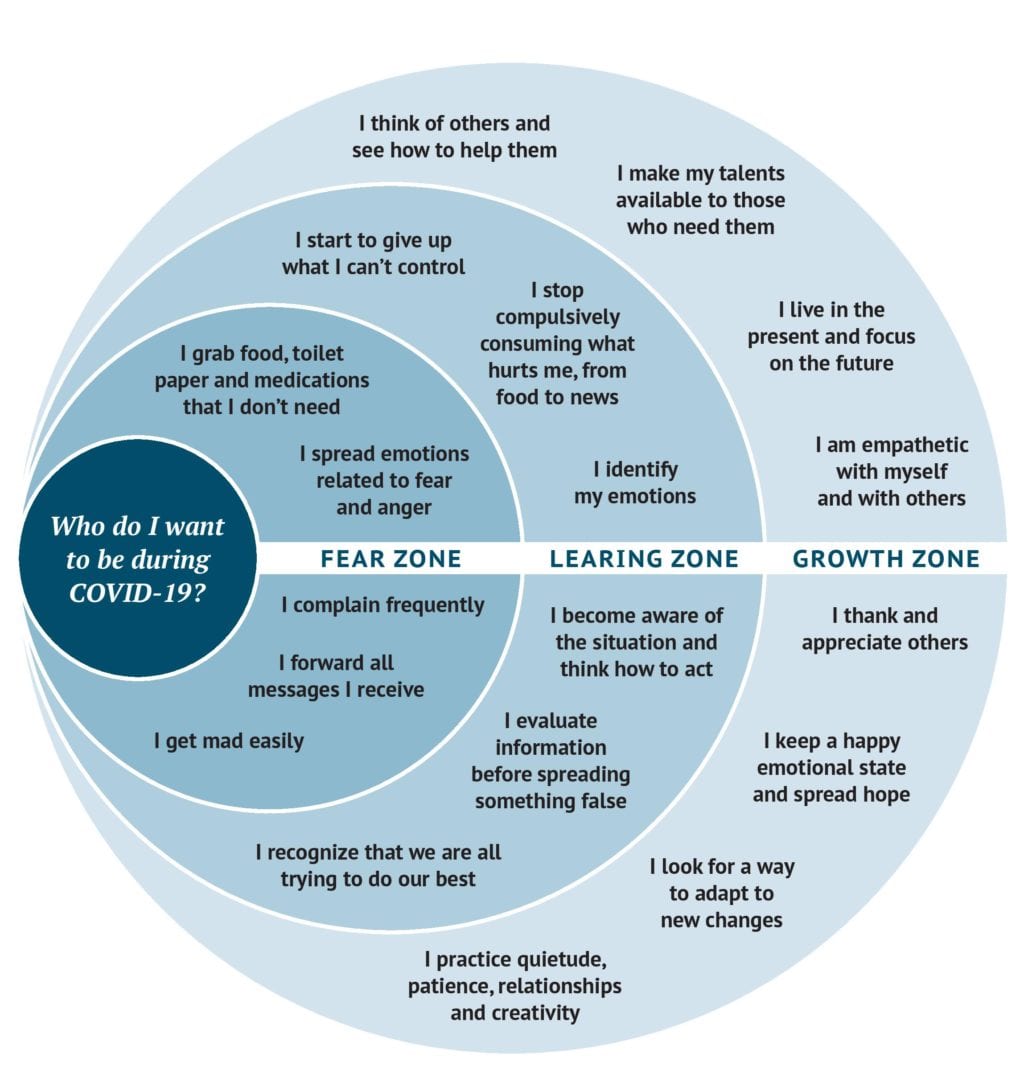I am thankful that as I write this, we have made it into the first week of April without any positive tests for COVID-19. What the city and state have mandated, and what the grassroots community members have been advocating, has obviously made a difference. The incident team continues to meet daily to stay abreast of the constantly changing landscape of the medical recommendations and prepare for all possible scenarios. Do not lose heart.
However, over the past few weeks our regular routines, social contacts, work, recreation and childcare/school for our children have been completely disrupted. As a matter of fact, “disrupted” seems like a far too mild description of the hurricane of life changes that has bombarded us over the past three weeks. But as Cordovans, you all know how to weather a storm, even one as unexpected and disorienting as this one is. Here are some recommendations from the medical and mental health experts to help you while you are in your “storm shelter.”
Most of what I am going to relay is common sense, and applies to staying healthier under any circumstance. However, with the exponential stress that has been associated with COVID-19, which not only includes the fear of contracting the virus, but the extra stressors of financial strain, online learning for your children, childcare for your children, and so on, the following things are now more important than ever.

- Take a break from social media and news about COVID-19. I can’t emphasize this enough. Set a time limit (I recommend no more than 30 minutes a day) and stick to it. Understand that constantly checking on updates can increase anxiety and feelings of helplessness. Instead, use that time to do (see list below) things that help with your health and mental wellbeing.
- Set a daily schedule and routine but give yourself (and your kids) lots of leniency and grace within that routine. Get out of your pajamas every morning!
- There are no vitamin, mineral, nutrient or herbal preventative or curative regimens for COVID-19. Be wary of social media reports that tout hot beverages, throat gargles, certain vitamin combinations, or a timeline for washing hands X number of times an hour. However, eating nutritious foods, staying hydrated, exercising and thinking about cutting out detrimental habits (like smoking) are beneficial at any time, but even more important now.
- Practice mindfulness. Take time to be completely present in today. Watch your children who are absorbed in play, they know how to do it the best! Step outside and feel the sunlight, watch the ducks or seabirds, bask in the beauty of the mountains. Take a “body-scan.” Close your eyes and notice the tension or acknowledge how each “part” of your body is feeling, starting at your head and going to your toes. Practice breathing deeply, in through your nose and out through your mouth, as you focus on each part of your body. These are all techniques to help you be present in the moment and move from the fear zone to the growth zone. (See diagram.)
- Find time for movement at least 30 minutes a day. Get outside if you can; if not, find online exercise programs. Better yet, check for Current Rhythms zoom classes so that we can exercise “apart but together.”
- If you believe, pray daily for healing and protection for your family and community. There have been many double and triple-blind randomized controlled studies (good science) on the healing power of prayer and the benefits to you as you pray. Prayer and meditation have been shown to have a clinically significant positive effect on blood pressure, heart rate, levels of melatonin and serotonin, boost the immune response and reduce anxiety and pain. Although there will always be a mystery to faith and prayer that cannot be explained by science, if you are interested in reading more about the research on spirituality and healing check out Duke University Psychiatrist and Professor Dr. Harold Koenig’s article reviewing studies between 1872 and 2010.doi.org/10.5402/2012/278730.
- Find a way to help out. I know many are making masks, knitting hats for the baby boxes, checking on your neighbors by phone, and delivering food. I love that our local stores have insured that we all have enough by setting quantity limits on high demand items.
- Find ways to connect over the distance. Although phone calls have fallen out of fashion in the era of text, messaging, and social media or try calling a good friend. The sound of a voice can be almost as healing as a touch.
- Don’t forget to laugh and find joy. I love seeing posts of your kids dancing other things that lighten our moods. Laughter may not be the best medicine, but it does increase those good brain chemicals and help keep us healthy.
- Times of stress can cause or exacerbate clinical depression or debilitating anxiety or panic. The CDC has a disaster distress helpline if you are having thoughts of harm to self or others at 1-800-985-5990 or text “TalkWithUs to 66746. Or even better, call Sound Alternatives at 907-424-8300 or Ilanka Community Health at 907-424-3600 to set up an appointment to help cope with the added stress of COVID-19. Both are doing Telehealth appointments and can help while you are in your own home.
- Lastly, focus on gratitude. Take time each morning to think of three things to be thankful for during this time. I, for one, am thankful for the diversity and resilience of this community that helps make us stronger because of our differing beliefs and opinions. Many of you have become my extended family and I am praying daily that we will come through this time stronger, healthier and more connected than ever before.
Dr. Kristel Rush is the medical director at Ilanka Community Health Center in Cordova.





